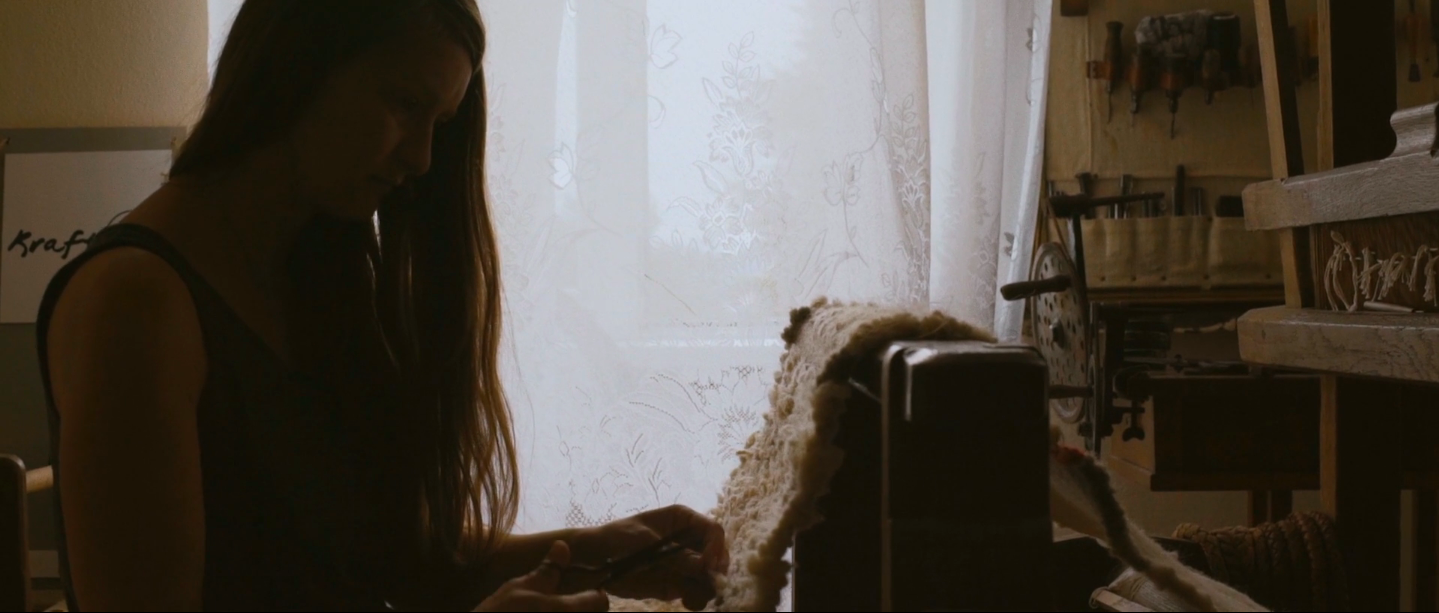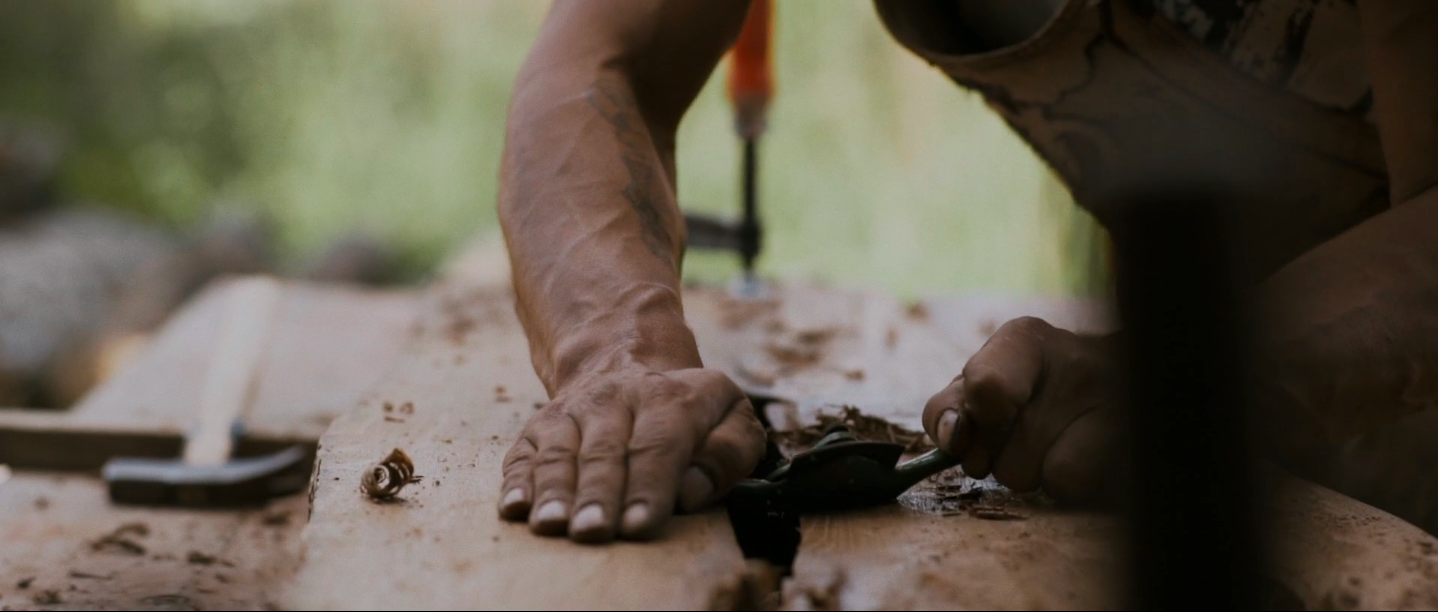“The strength of voice always comes from togetherness.”
Marlene Stanciu is a-one-woman-do-it-all who has moved in her grandmother’s house in Cincu, the village she grew up in, and has since revived a local festival, did work in wool and wood, experimenting and researching local plants and resources. She is a craftivist with a long local Saxon family tree and is passionate about ruralism and slow design. Together with her partner Alex Herberth, she represents KraftMade.

Photo credit: MarleneStanciu @Marin Dinescu, Daniel Serbanica - Artsilvania
Tell us about your work and practice.
Our KraftMade project is about researching the sources and resources of archaic harmony and traditional craft techniques – why things were done in different ways in relation to their originary geography. We test the contemporary practicality of old ideas, of natural materials and the slow circuit of design, production and consumption (slow design). Since 2017, in an endeavour to produce fewer objects, but stimulate more meaningful dialogue about sustainability, we created KraftMaking the Future, a series of practical workshops for artisans, designers, architects and artists meant to convey archaic craft wisdom as a sustainable solution for the future. Our life in the village of Cincu means also community work, such as the revitalisation of the Urzelnlaufen Transylvanian Saxon custom of chasing away winter and bad spirits (yearly event, every February), or teaching hands-on restoration skills to local construction workers as a bottom-up, sustainable means of saving traditional techniques, architectures and landscapes. Our practice is focused mainly on wood and textiles and their relation to place but also multisensory and interdisciplinary issues, working across a range of mediums between metal, bones and stones, food, plants and technology, bridging heritage and future.
What are the main challenges in your work?
Taking up a road less travelled is always more challenging than fitting into an already existing business model laid down by the mainstream economy. The challenges we faced along our seven years of work in the field of intangible heritage and transmission of traditional knowledge are tied to educating a non-existing public, building up a market and an audience, training its stakeholders, all this meaning an ecosystemic navigation of the field. We have to always keep a clear vision on the big picture while constantly working on conveying our values, but also reevaluating and evolving according to the societal changes we are going through at a rapid pace. Doing groundwork, physical work but also office work in securing funding and visibility is a 24/7 job that we could not do otherwise than by living what we talk about, practicing what we preach.

Photo credit: Alex Herberth @Marin Dinescu, Daniel Serbanica - Artsilvania
How do you think international collaboration will impact your work?
International collaboration is key in our field of work. As tools, techniques and the underlying ideologies and stories travelled across territories since the beginning of peoples’ movements (that is, since forever), we think it is important to focus on geographic determinism that allows the best solutions to be identified locally, but also map and extend patterns internationally. Sharing knowledge and research, connecting the dots and having a common, shared practice and capacity to identify best practices are vital in demonstrating the strength and viability of this new/old economic model we are practicing. After all, the strength of voice always comes from togetherness.
Have you learned anything surprising about UK craft?
In our constant process of researching history archives as old as 14th century (until now) we discovered the wondrous movement of tools and techniques across territories, so that we cannot hold crafts so much apart from one or the other part of Europe (and even beyond). Even if the process of traditional knowledge transmitting is classified as intangible heritage, the language of hands-on making manifests into a tangible legacy, into visible matter that does not need a spoken, common language. So the surprising, often forgotten, deep layer you find everywhere is that of tolerance, of shared learning, of co-dependence with nature and with each other.
How do you see the future of craft and your work in a post Covid-19 world?
The Covid crisis has revealed a lot of issues on a material and spiritual level at a very rapid pace over these last months. We have seen more tangibly than ever what we had been forecasting since some time – the damage of overconsumption, the unsustainable nature of overseas supply chains, the lack of respect and care for nature. In this grim context we still see a bright future for craft practices because of their resilience and the regenerative, ecosystem thinking they imply in their processes. We do hope for increased support for the things we do, spreading craft thinking education into the various walks of life.
What advice would you give other craft practitioners who are trying to adapt?
Have faith in the benefits of your practice, continue to make useful, long-lasting things with a soul and a story to tell, focus on transparent processes and excellence of your techniques, choose your materials and resources wisely in harmony with your surrounding nature, and your craft will sparkle bright, improving our impact and co-existence in this world.
Crafting Futures is a global British Council programme building a positive future by unlocking craft’s unique potential to inspire people around the globe. The programme celebrates the value of craft in our history, culture and world today.
Through making and international collaboration, Crafting Futures brings together craft practitioners, designers and organisations from around the world to explore possibilities for this future together.
Launched in Romania in 2020, Crafting Futures brings together six craft professionals from the United Kingdom and organisations, designers, artists and craftivists in Romania, aiming to support the development of shared learning and traditional, sustainable craft and design practice.
https://www.britishcouncil.ro/en/programmes/arts/crafting-futures
